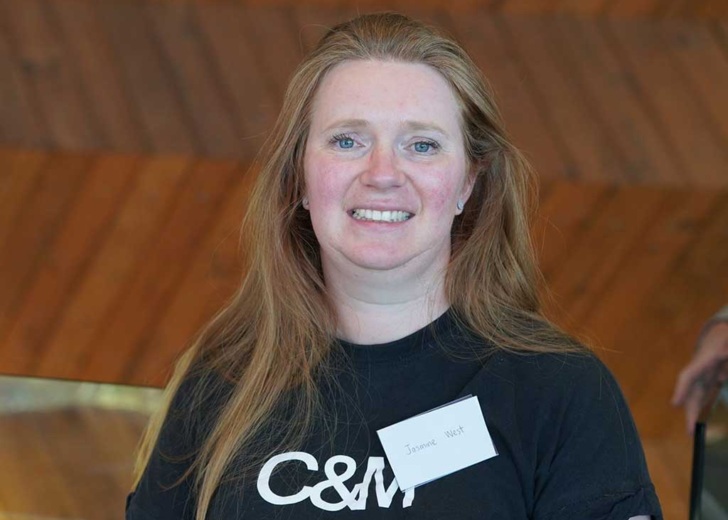Jasmine’s story
She was one of around 18 Australians aged 18-45 who will have a stroke every day – a condition on the rise in younger people.
Despite this, younger people who experience stroke are underserved in the health system –with misdiagnosis in hospitals often preceding a lack of targeted support and rehabilitation services for recovery. What is available currently wasn’t designed with the specific needs of young people in mind.
“After my stroke all that was on offer was support groups, exercise classes and activities for elderly people,” said Jasmine.
“I always heard ‘aw, you’re too young for stroke’ type comments. It was exhausting,” she said.

It was these experiences that have Jasmine convinced that the Florey’s new Young Stroke Service (YSS) will have tremendous benefits.
Launched in May the YSS is Australia’s first health service providing personalised clinical care and additional long-term support to young people with stroke.
“The Young Stroke Service has been designed for young stroke by young stroke. Your experiences of recovery are understood and have been felt, so you know it’ll be relatable.”
“Meeting other young survivors in the program was fantastic – I found my people and felt no judgment. I wasn’t odd or hopeless.”
An important initiative for young stroke survivors like Jasmine, the service will address everyday unmet needs such as getting back to work, memory and cognitive problems and connecting with peers.
“Young people tell us that leaving hospital feels like ‘being dropped from a plane without a parachute,’ – we aim to change that experience,” says Professor Julie Bernhardt, co-leader of the YSS.
The service comes after six years of research into the unmet needs and challenges faced by young stroke survivors. Designed and informed by a team of experts in rehabilitation, neurology, general practice, accessibility and digital health service innovation – and, at its centre, Jasmine and other young people who have experienced stroke.
“The relatability amongst peers is how society works, young survivors just get your emotions – your experiences are felt and understood. Your tears are valid, you are valid,” said Jasmine.
“The right information and where to find it is huge. To know you are not alone is everything.”
Following her stroke Jasmine made a remarkable recovery. She now lives independently studying sociology and volunteers for community paramedics. She also serves on the Young Stroke Service working group, sharing her experiences to inform the direction and design of the service.